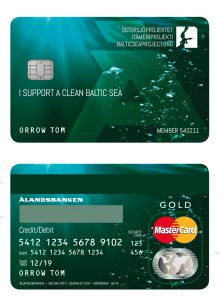
Recently, to mark Earth Day, we discussed some of the ways the IoT is helping the environment. These included monitoring and protecting seal populations, helping the authorities combat illegal wood harvesting in the Amazon rainforest, and enabling remote communities to generate power through renewable energy. But it’s not just the IoT that’s doing its bit; financial institutions like the innovative Scandinavian Bank of Aland are playing an increasingly important role in the fight to save the planet.
Have you ever thought about how your spending habits might be contributing to climate change and pollution? The pace of everyday life means it might be easy to forget. Now, thanks to the Bank of Aland’s ‘Aland Index’, a unique ‘carbon calculator’, customers will be able to see their carbon footprint presented on their monthly bill. The Index forms part of the Bank’s Baltic Sea Project, launched to lower the level of contamination in one of the world’s most polluted seas. It’s a great way to help people ‘think green’. What’s more, the bank is making the technology behind the Index available to any bank, aiming to drive positive change across the sector. Watch the video below to learn more:
If the Aland Index wasn’t enough, the Bank is also issuing Optelio bio-sourced cards, made entirely from renewable resources, rather than plastic. The initiative forms part of Bank of Aland’s objective to substitute all their plastic payment cards in Finland and Aland with biodegradable materials. These cards aren’t just environmentally-friendly; they also promote a green message in a colorful, eye-catching manner. The front of the EMV-certified card is dedicated entirely to the Baltic Sea project, and all card data and logos have been moved to the back, underlining Bank of Aland’s commitment to protecting the environment. We’re proud to say that Optelio is a Gemalto innovation – and we were the world’s first ever supplier of a bio-sourced payment card.

Promisingly, other banks are also turning to bio-sourced payment cards in the fight to combat pollution. The Banco Popular Dominicano, based in the Dominican Republic, has adopted Gemalto’s unique, corn-based PolyLactic Acid substitute, which is biodegradable, recyclable and non-toxic if incinerated.
Collaboration and innovation are crucial to combatting pollution, as the Bank of Aland’s Baltic Sea Project demonstrates. By turning to environmentally-friendly resources and encouraging a ‘greener’ mentality among customers, it’s clear financial institutions can make a difference.
What’s your view on the importance of green banking? Let us know by tweeting to us at @Gemalto, or by posting a comment below.


